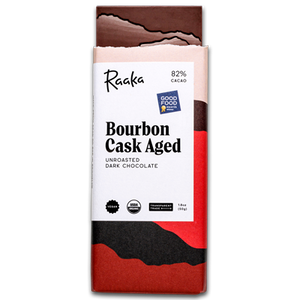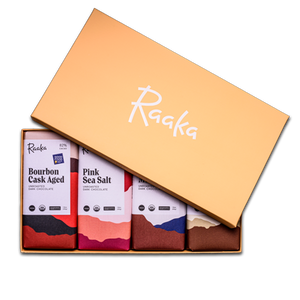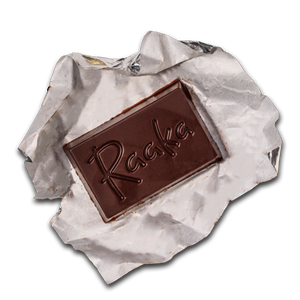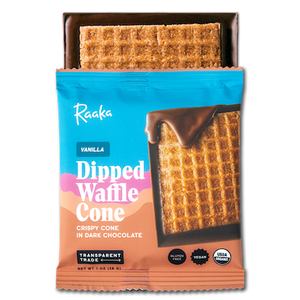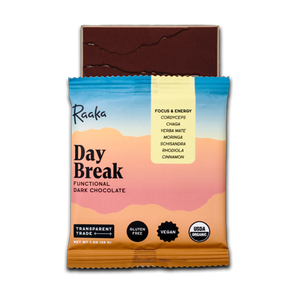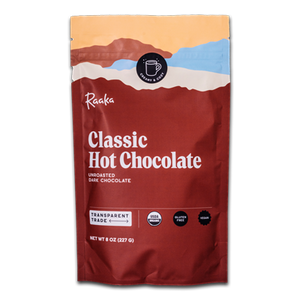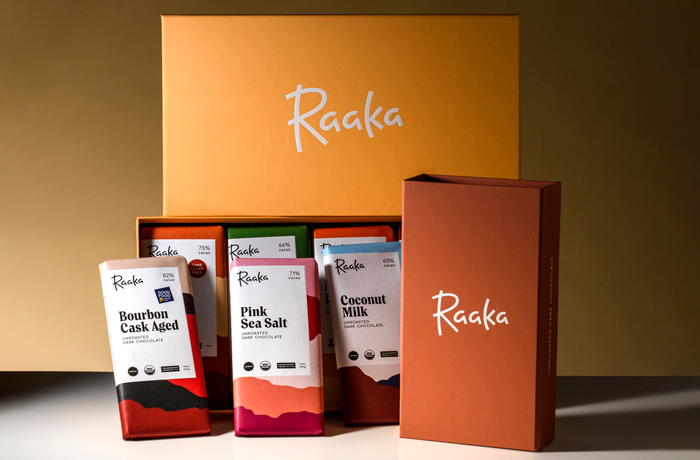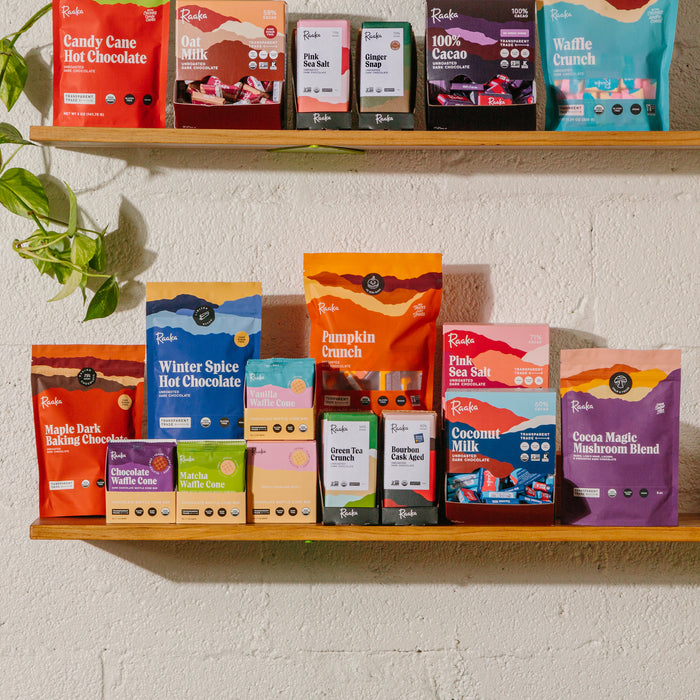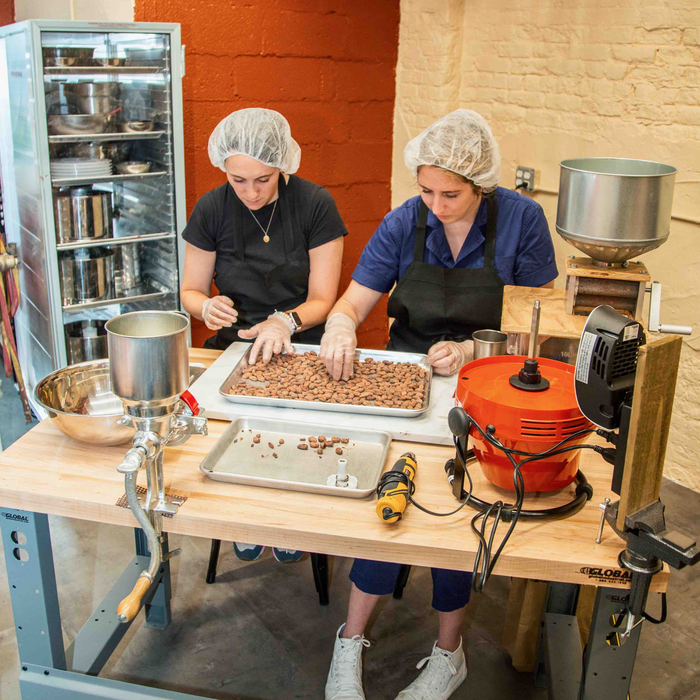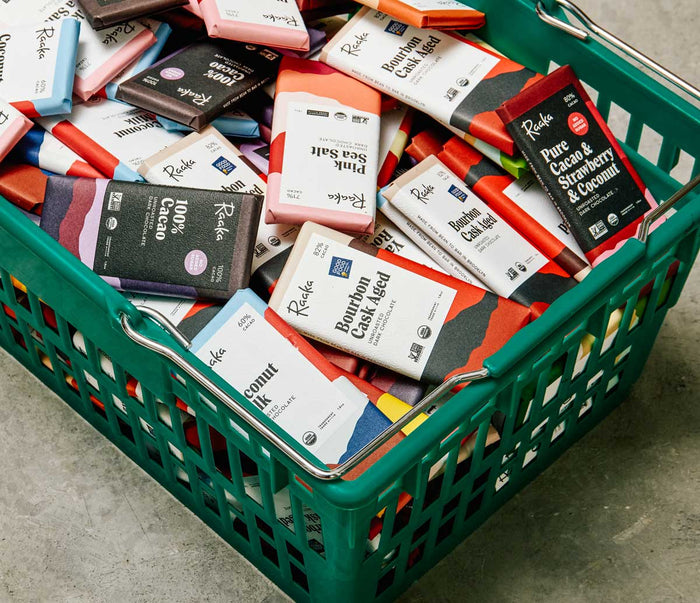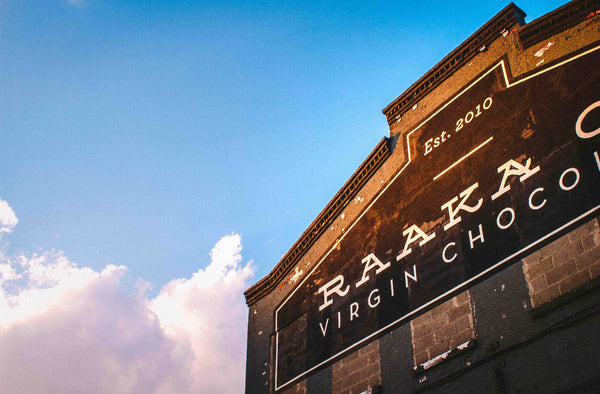An Interview with Oliver Stormshak, Olympia Coffee co-owner.
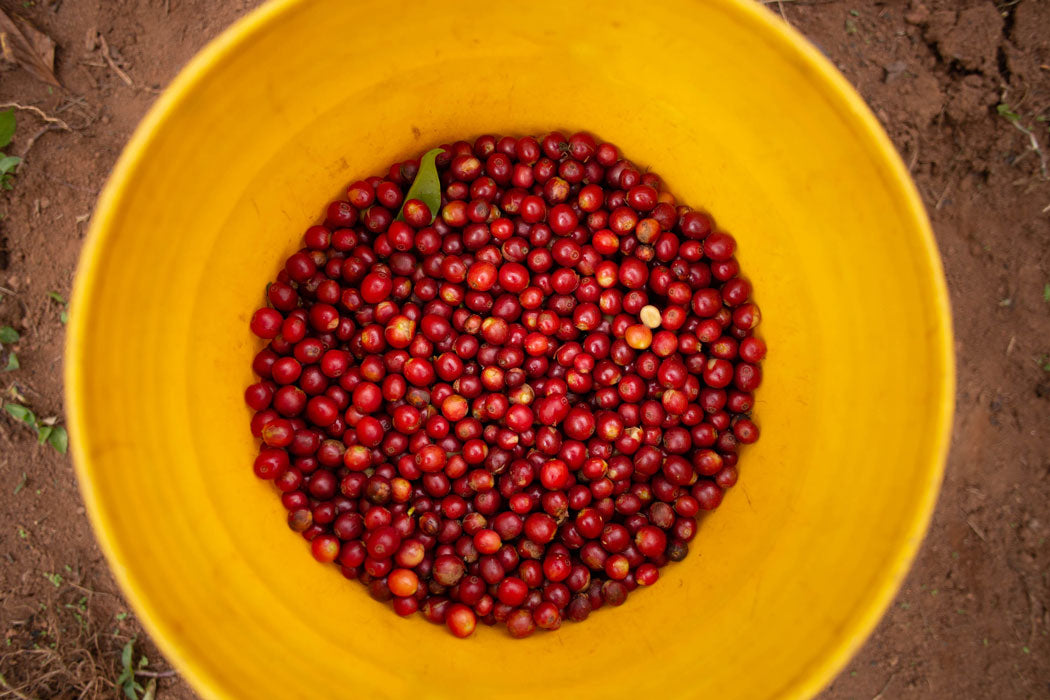
Raaka is really excited to have collaborated with one of our awesome partners, Olympia Coffee, on our January First Nibs collection. Olympia sources and roasts award winning direct trade coffees from around the globe to share online, with retailers, and with coffee lovers at their 6 cafe locations in Olympia, Tacoma, and Seattle. We sat down (virtually!) with one of Olympia’s co-owners, Oliver Stormshak, to learn more about Olympia, their amazing coffees, their Fair for All sourcing model, and the inspiration behind our chocolate collab!

Oliver, how did you first learn about Raaka Chocolate?
The first time I met Nate was at a very small gathering of industry professionals in coffee and cacao as part of the Transparent Trade Coffee Colloquium at Emory University. This is an elite group of producers, exporters, Importers, and roaster-retailers focused on transparency and fair pricing in our industries. Transparent Trade culminates with a data donation of participating donors to establish current contracts for prices paid FOB for specialty coffee.
How does Olympia source its coffee beans?
Big topic, we source our coffees from producer partners in 8 different countries. Colombia, Ethiopia, El Salvador, Guatemala, Peru, Burundi, Kenya, and the USA (Hawaii). We work directly with the farmers who grow our coffee. One of the big differences in how Olympia Coffee works from other “Direct Trade” models is that we go beyond just the “farmer”. We call our sourcing program Fair For All. Under Fair For All, we have a means of ensuring that our producers and Co-ops set a sustainable minimum wage for their own workers. Moreover, our Fair For All farms and partnering facilities are required to provide working conditions that are free of unnecessary danger and access to clean drinking water for all their workers. We ensure these policies like we always have: by visiting our producers in-person throughout the year and by building partnerships based on their needs.

How does Fair for All differ from Fair Trade or Direct Trade sourcing models? Why did you decide to create your own distinct model?
Fair For All provides meaningful standards for transparency with the goal of improving the quality of life for our partners. Direct Trade was revolutionary for its time, but through the years, we found that traceability and accountability in direct trade partnerships weren’t being consistently portrayed due to the lack of clear reporting standards.
Every year, we publish our annual Transparency Report, which allows our customers to track their coffee purchase back to the farm where it was produced and see the prices we paid for the quality coffee they enjoy.
Again, Direct Trade or transparency is a good start, but imagine this scenario: what if you pay a great price for a tasty coffee directly to the “farmer” but that farmer employs hundreds of pickers and millers to bring this coffee to market? These workers see no gain to specialty, no gain to direct trade but the consumer would not know the difference. We’ve chosen to publish the rates we pay to farmers, and if they hire pickers to assist with their harvest, we publish those wages, too. We are trying to build a model that ensures that the coffee you purchased from Olympia Coffee is beneficial to the land it was grown on and supports a sustainable livelihood for each stakeholder.

How do you see the Fair for All model evolving and growing to create even more impact for those involved in the coffee supply chain?
This is a great question. With Fair For All, the core concept is so much bigger than Olympia Coffee. It’s really something our industry as a whole should address. For so many, who live in regions where specialty coffee is grown it’s not a sustainable livelihood. More and more young people leave rural areas and never return. The average coffee farmer globally is in their 60s. We don’t have many more years before this crisis collapses the entire industry.
How do you find customers perceive the coffee supply chain? What preconceived ideas do they bring based on larger coffee companies marketing messages vs. the reality?
I don’t think they really think about it. Most people know coffee grows somewhere else (maybe tropical, etc). Some link to origins like Colombia (Juan Valdez), others on the more specialty side have tasted Ethiopian coffees that changed their lives so they seek that origin out, and more just have nice thoughts around an origin, for example, Hawaii (who doesn't want to wake up and think about paradise). Some more ethically driven consumers to seek out certifications like or Organic and Fair Trade, which is unfortunate as the reality of these certified coffees is that they are not very traceable and are clearly more of a commodity or bulk division of the specialty coffee market. Also these certified coffees are often lower quality because the value is in the certification, not the quality. I feel bad for consumers, it’s a mess of confusion, and the cynical side of me wants to let everyone know that it was designed to confuse consumers, so that they just throw their hands up and head to local Starbucks or just purchase what is on sale at the supermarket (at least they understand a good value).
What are some ways consumers can hold companies more accountable? What can makers do to encourage this?
From my experience, our customers tend to focus on issues more local and things that they understand a little better. For example our customers often demand a Certified Organic product.
I’ve taken the approach of doing what I think is right, If we show leadership and passion I’ve always believed our customers would see that and support it.

How does the Fair for All sourcing standard impact the quality and flavor of Olympia’s coffee?
At Olympia Coffee, we have a set of strict quality standards that apply to our coffees. We use the cupping score as the primary driver for negotiating prices with farmers. In truth, it does vary depending on a producer's own costs and desired margin.
But back to the cupping score. We purchase coffees that score only 85 points and above on the Specialty Coffee Cupping Score Sheet. In this score sheet, one quantifies the values of aroma, acidity, body, flavor, and aftertaste.
Often, people ask me, yeah but Olympia is soooo good so different what is the secret. The secret is in our roasting. We have a unique roasting technique that we call the Caramelization Roast that leads to a much sweeter cup of coffee.

Both coffee and chocolate face steep challenges when it comes to both environmental sustainability, but also in terms for fair consumption. Economic inequalities in both consumer and producer countries restrict a large extent of the consumption to exploitative models. What will it take to change this on a large scale?
This is a question that I think about all the time. I think my current big thought is essentially that coffee and chocolate need the following:
The lower quality products need to move to be heavily mechanized on the production side and more like an industrial food factory on the processing end. Low quality coffee and chocolate that will be used as a flavor ingredient or is simply cheap should also be controlled with time, temperature and yeast to push processing through at a faster rate. This industrial product will have a few high-paid engineers who run the seed to the cup-bar.
On the flip side, the high-quality coffees and chocolate will come from smaller-scale farmers who can produce impeccable quality. There will need to be a better selection of varieties for these boutique farmers to work with. On the coffee side, think rare varietals like Gesha or Kurume. These coffees will need to be controlled on the processing side much more like a modern brewery-winery. It’s insane to me that we get such awesome flavors from coffee and chocolate today when fermentation of the mucilage is taking place uncontrolled in rudimentary wood or concrete bins. It could and will need to get better. These coffees will be expensive to produce and to purchase.
One of our collaboration bars, the Bergamot Vanilla Latte, was developed based on the flavors of one of Olypmia’s signature drinks, the Calabria. How did you all develop the drink and what was the inspiration behind it?
A couple of things inspired this drink:
1. It's inspired by washed Ethiopian coffees from the Yirgacheffe region. These coffees can often be candy-citrusy and floral, reminiscent of Bergamot.
2. Its base was originally created for another drink that is a popular off-menu beverage in specialty coffee shops in the country, The London Fog. The London Fog is Earl Grey Tea Stepped in Milk with vanilla sweetener. When we created our own version that we call the Olympia Fog but through experimenting, we created this delicious espresso drink.
This is my personal favorite seasonal espresso drink. Citrusy, floral, pretty!
We use your Good Food award winning Big Truck Espresso in the bar, what makes this blend so special?
Big Truck is our most popular coffee, it’s the perfect balance of chocolate and fruit. We blend using rich, chocolatey Colombian coffees and super fruity, berry forward Ethiopian Naturals.
Our second collaboration bar, Turkish Coffee, has grounds of your Morning Sun coffee folded in. Where do you source these beans from and how did you decide on the super dark roast for this coffee?
The coffee we use in Morning Sun is part of the largest coffee sourcing project anywhere in the world. It's from certified organic producers in the community of Planadas in Tolima, Colombia. We work with roughly 50 independent farmers in a project that we call San Fermin within this community.
Learn more about Olympia Coffee by visiting their website or following them @OlympiaCoffee.
